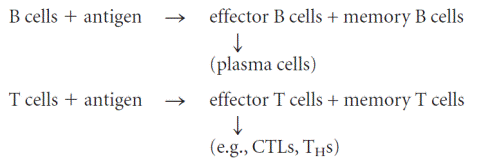
КАТЕГОРИИ:
Архитектура-(3434)Астрономия-(809)Биология-(7483)Биотехнологии-(1457)Военное дело-(14632)Высокие технологии-(1363)География-(913)Геология-(1438)Государство-(451)Демография-(1065)Дом-(47672)Журналистика и СМИ-(912)Изобретательство-(14524)Иностранные языки-(4268)Информатика-(17799)Искусство-(1338)История-(13644)Компьютеры-(11121)Косметика-(55)Кулинария-(373)Культура-(8427)Лингвистика-(374)Литература-(1642)Маркетинг-(23702)Математика-(16968)Машиностроение-(1700)Медицина-(12668)Менеджмент-(24684)Механика-(15423)Науковедение-(506)Образование-(11852)Охрана труда-(3308)Педагогика-(5571)Полиграфия-(1312)Политика-(7869)Право-(5454)Приборостроение-(1369)Программирование-(2801)Производство-(97182)Промышленность-(8706)Психология-(18388)Религия-(3217)Связь-(10668)Сельское хозяйство-(299)Социология-(6455)Спорт-(42831)Строительство-(4793)Торговля-(5050)Транспорт-(2929)Туризм-(1568)Физика-(3942)Философия-(17015)Финансы-(26596)Химия-(22929)Экология-(12095)Экономика-(9961)Электроника-(8441)Электротехника-(4623)Энергетика-(12629)Юриспруденция-(1492)Ядерная техника-(1748)
Immunogenicity Versus Antigenicity
|
|
|
|
Introduction
Haptens and the Study of Antigenicity
Antigen-Derived Peptides Are the Key Elements of T-Cell Epitopes
Properties of B-Cell Epitopes Are Determined by the Nature of the Antigen-Binding Site
Epitopes
The Biological System Contributes to Immunogenicity
The Nature of the Immunogen Contributes to Immunogenicity
Factors That Influence Immunogenicity
Immunogenicity Versus Antigenicity
Introduction
Antigens
Lecture 1.5 Antigens, their structure, properties
Plan:
Substances that can be recognized by the immunoglobulin receptor of B cells, or by the T cell receptor when complexed with MHC, are called antigens. The molecular properties of antigens and the way in which these properties ultimately contribute to immune activation are central to our understanding of the immune system. This lecture describes some of the molecular features of antigens recognized by B or T cells. The lecture also explores the contribution made to immunogenicity by the biological system of the host; ultimately the biological system determines whether a molecule that combines with a B or T cell’s antigen-binding receptor can then induce an immune response. Fundamental differences in the way B and T lymphocytes recognize antigen determine which molecular features of an antigen are recognized by each branch of the immune system.
Immunogenicity and antigenicity are related but distinct immunologic properties that sometimes are confused. Immunogenicity is the ability to induce a humoral and/or cellmediated immune response:

Although a substance that induces a specific immune response is usually called an antigen, it is more appropriately called an immunogen.
Antigenicity is the ability to combine specifically with the final products of the above responses (i.e., antibodies and/or cell-surface receptors). Although all molecules that have the property of immunogenicity also have the property of antigenicity, the reverse is not true. Some small molecules, called haptens, are antigenic but incapable, by themselves, of inducing a specific immune response. In other words, they lack immunogenicity.
|
|
|
|
|
Дата добавления: 2015-06-04; Просмотров: 479; Нарушение авторских прав?; Мы поможем в написании вашей работы!